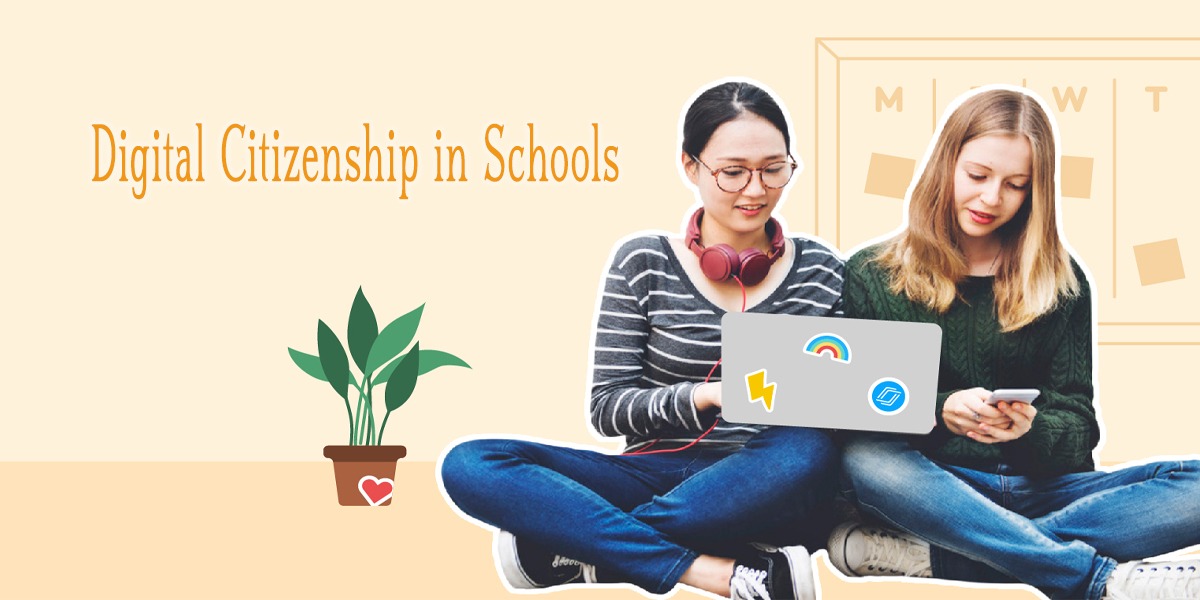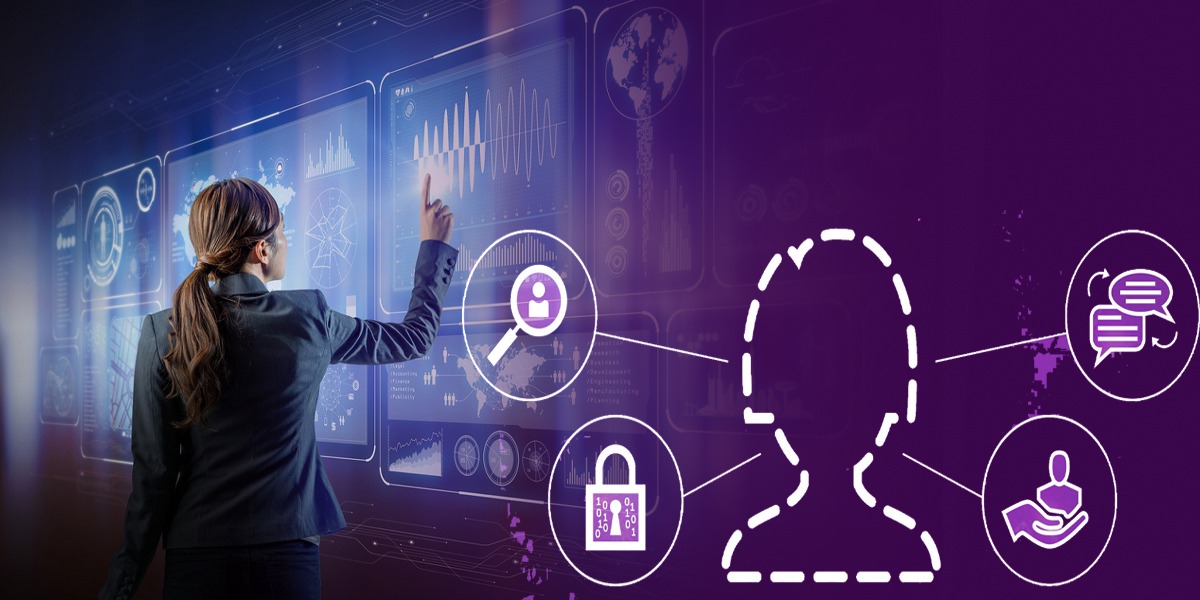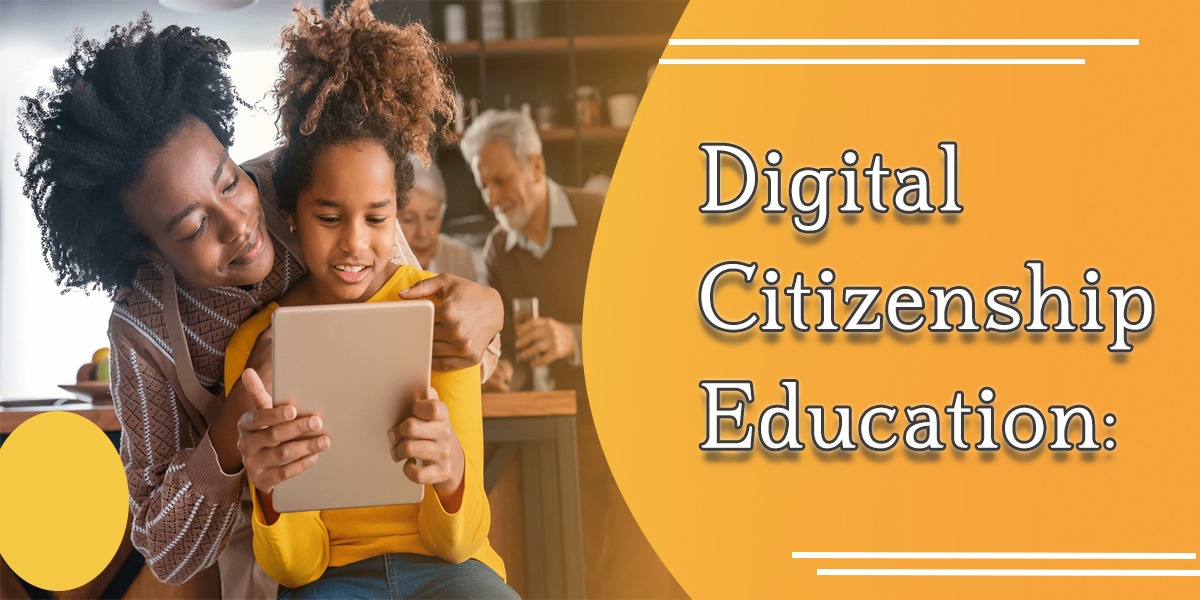It is difficult to overstate the impact of innovation that has influenced society. This has drastically modified our social interactions, learning, conducting business, and entertaining ourselves. Considering our society’s advances in terms of technology, individuals from all generations need to comprehend how to employ technological devices without compromising safety and ethics. That’s why digital citizenship education is an important part of Today’s learning environment, it empowers students to be savvy users in a constantly-changing tech landscape.
It can even help them develop healthy habits well beyond the classroom walls. Plus, this type of instruction helps citizens become more productive and informed participants in society on any platform by teaching about responsible participation online through courtesy and ethical engagement with content. Teaching digital citizenship skills can positively shape individuals’ interactions within their communities now and into the future. This guide will explore the strategies to understand digital citizenship and its importance.
What is Digital Citizenship?
In Today’s digital age, understanding the concept of digital citizenship is more important than ever. It can be defined as the responsible and ethical use of technology and internet platforms. It includes a variety of expertise regarding online safety, the skill of critical thinking, and using social media appropriately. Online behaviour is necessary for establishing a safe and friendly online society. An increasing number of individuals depend on technology to share ideas, knowledge, achievements, and amusement.
Being a responsible digital citizen protects individuals from online dangers and fosters positive communication, collaboration, and social engagement. To secure a brighter future for everyone as technology develops, it’s critical to keep aware and educated on the fundamentals of digital citizenship.
Examining the Benefits of Digital Citizenship Education

Teaching digital citizenship in schools is essential. Students must learn to navigate the online world responsibly and make informed decisions. Being a responsible digital citizen means using technology and online communication thoughtfully and mindfully. We can build a safer and more encouraging online environment by being conscious of our actions and their effects. Teachers can lessen the damaging effects that technology may have on students’ lives by instructing them on how to be good online citizens.
This includes teaching students about online safety, cyberbullying (cyber harassment), and appropriate online behaviour. The benefits of teaching digital citizenship in schools are numerous, from increased digital security awareness to developing essential communication skills. Educators can help prepare students for a world increasingly dependent on technology by integrating digital citizenship into the curriculum.
Educate Students on Digital Citizenship
In Today’s world, it is a crucial aspect of student education. Students need digital skills to use technology and online platforms effectively. However, more than simply providing access to technology is required. Teachers must also show learners how to work with these technologies ethically and responsibly. This means training students on online privacy, cyber harassment, and digital footprints. By engaging in strategies to educate students on digital citizenship, schools can help students to become responsible digital citizens who are knowledgeable and safe online.
Technological Tools to Promote Digital Citizen Education

As our world becomes increasingly digital, individuals must possess the skills to navigate and participate in online communities responsibly. Digital citizen education is a critical component of this, and technological tools can be incredibly useful in promoting this type of learning. From interactive educational games to online forums for discussing internet safety, various tools are available to teachers and parents to help children develop the skills they need to be safe, informed technology users. By exploring and integrating these tools into our children’s education, we can help them become responsible and active digital citizens.
Ethical Technology and Cyber Harassment
Technology’s evolution brings new challenges to our lives. One of these challenges is cyberbullying (cyber harassment), which can devastate victims. But what if technology could also be the solution to this growing problem? With a focus on responsible and ethical technology, we can build safer digital environments that promote positive behaviour and discourage cyberbullying. By designing platforms with features that protect against harassment and educate users about proper online conduct, we can help to control the occurrence of cyberbullying and create a healthier online culture. We can create a safer digital future for everyone by working together.
Policies and Procedures to Uphold Online Manners

From staying connected with loved ones to working remotely, it’s hard to imagine life without it. Following proper online decorum is essential to avoid misunderstandings and maintain professionalism. Developing policies and procedures that uphold these standards is crucial for businesses and organizations to foster a positive online presence. These guidelines can cover various topics, such as tone of voice, respectful language, and appropriate communication channels. By implementing these practices, businesses can cultivate a culture of online professionalism and create a cohesive brand image across all online platforms.
Sum Up
The need for students to be prepared for the world they presently live in with regard to digital citizenship is growing. Training should be a priority for parents and educators so that students are guarded against online risks while learning to present themselves online through responsible behaviour appropriately. With the tools and resources available Today, it’s possible to help shape a generation of ethical digital citizens who recognize the power and influence of this new form of communication and take responsibility for their cyber footprint.
By promoting safe online practices, proper decorum, healthy relationships with technology devices, and respecting others’ privacy and opinions, we can reduce cases of cyberbullying, protect ourselves from revenge, vulgarity and enjoy a more open dialogue about all aspects of technology use. Ultimately, cultivating digital citizenship is a shared responsibility between schools, parents, guardians, caregivers, and communities — everyone has a role in making cyber safety a priority.




